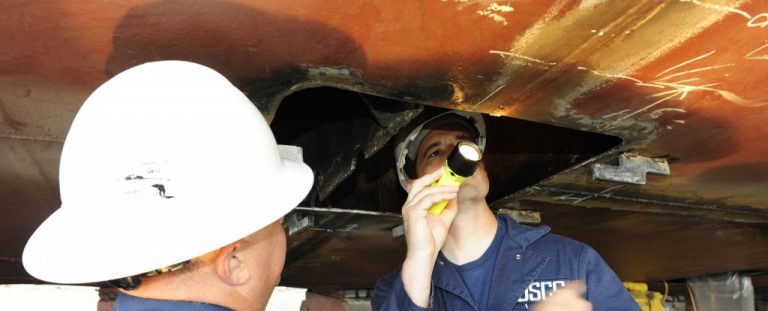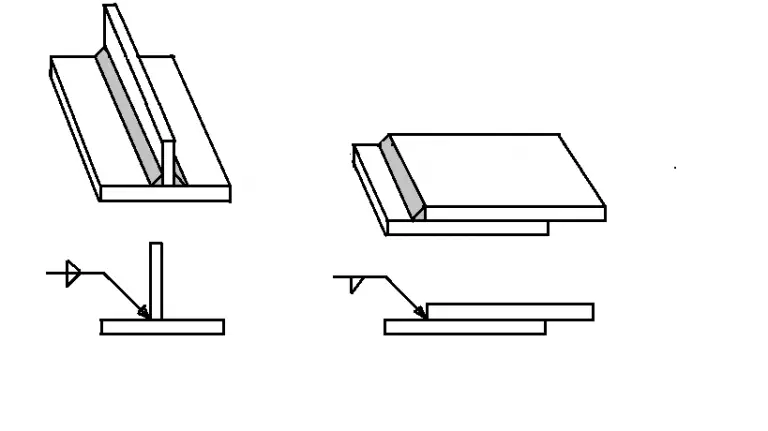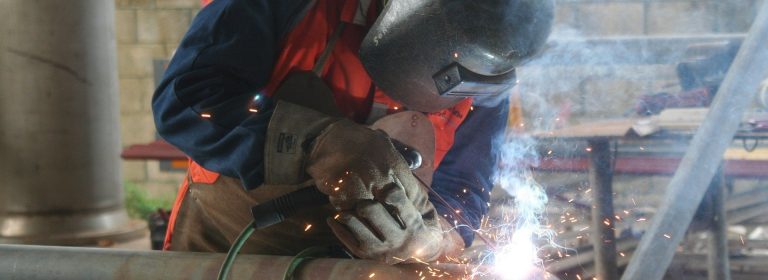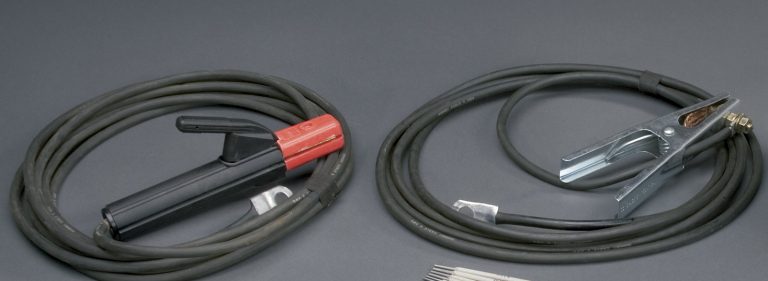Is It Safe To Weld In The Rain?
This post contains affiliate links.
This is a question that many beginners wonder about. Is it ok to weld in bad weather conditions? What if there is a deadline that must be met – but it is pouring rain?
Although it can be done, welding in the rain is a dangerous act that must be taken very seriously. If you absolutely must weld, there are some precautions to take. With this being said, welding while it is precipitating is never safe. Even if your boss gives you the go ahead, you must make your own choice, as your personal safety is at stake.
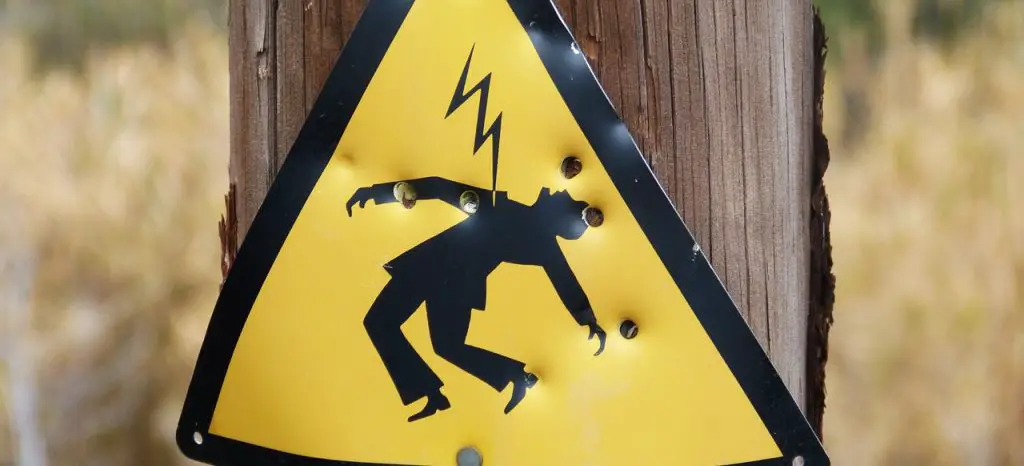
Making a mistake while welding in the rain can cause bad electrical shocks, the worst of which can be fatal.
This article will cover the best strategies for welding in poor whether, and why it’s usually a good idea to avoid it all together.
What Are The Dangers?
Since a welding machine produces lots of electricity, the chance of getting shocked is always there. There is amperage running through your leads to the weld, and there is also amperage running from the ground lead back into your machine. The amperage that the electrode pushes into the metal must exit through the ground lead (and back into your machine)
This big loop of current is how all welds are produced (whether stick, MIG or TIG welding). When performing welds on dry metal, the chances of getting shocked are quite low. If you have a proper ground connection and good equipment, the current will run smoothly throughout the metal.
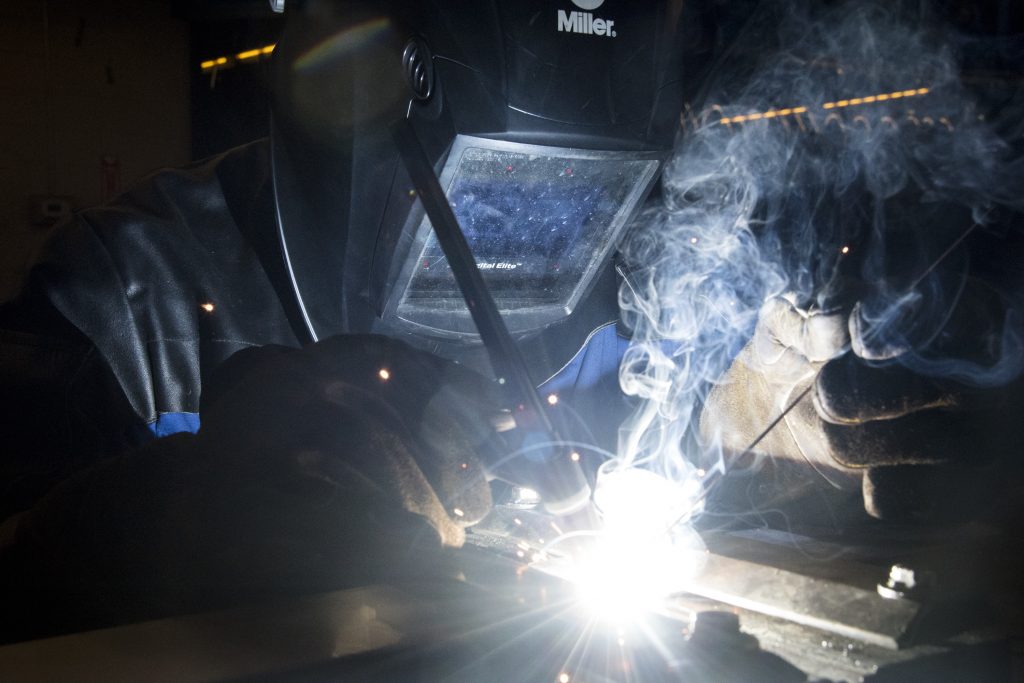
The problem with moisture is that the welding current tends to travel more. If you have ever welded with wet gloves, you can often feel the electricity trying to travel up your arm. Even having sweaty hands during the summer can produce this shocking effect. The welds electricity will travel freely through any sort of moisture, this is where the danger comes into play.
When you are welding outside in the rain, the welding current can travel quite far due to all the steel being wet. This can cause electrical shock for your coworkers as well.
A good example of shock danger is with underwater welding. If underwater welders forget to setup their ground clamp, the arcs electricity will flow freely underwater. This means that getting shocked is much more likely, and all of the weld current will be entering the welders body.
Welding in the rain is a less severe situation than underwater welding, but the principal still applies – electricity will travel freely if there is moisture involved. If you forget to setup your ground, the electricity has no way to go back into the machine.
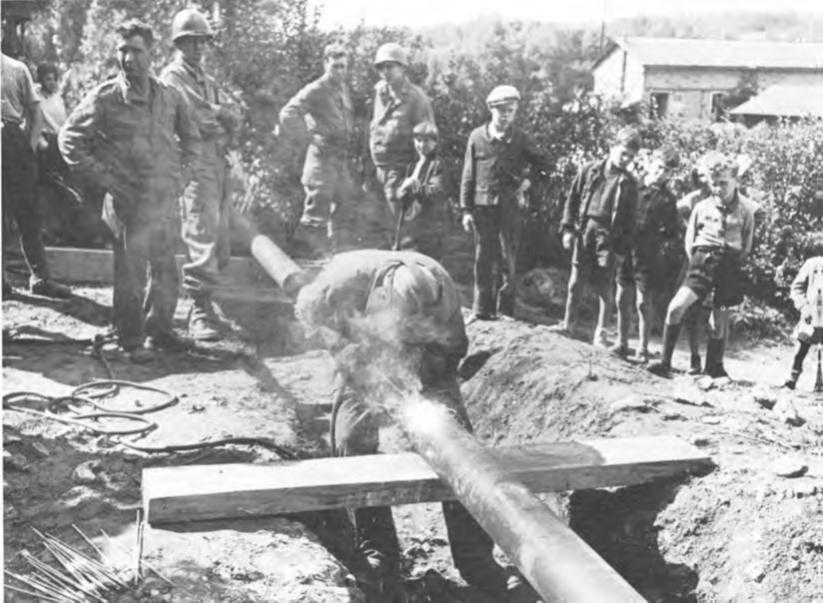
It is also best to setup your ground clamp closest to where you are actually welding. If your clamp is too far away and there is water in between the ground and electrode, shocks can happen more easily.
Since larger construction jobs have big steel connections (I-beams, braces, etc.) This could mean that a coworker could get shocked from hundreds of feet away. The steel frames of buildings are like a giant web of connected steel. When you add moisture to the mix, anyone on the job can get shocked if there is welding involved.
For this reason, ironwork is often delayed if the weather is unfavorable. Proceeding during bad weather conditions can result in heavy fines from OSHA and other protective organizations.
It is also important to have quality rubber soles on your work boots. This doesn’t guarantee that you won’t get shocked, but it’s a good safety measure that will offer some distance from your body and the steel.
Wet Clothes Are Inevitable
The other problem with welding in the rain is that your protective clothing will get drenched. When this happens, you are basically wearing garments that will conduct electricity very easily. The wetter your clothes get, the more likely it is that the welding current will travel towards you and into the clothing.
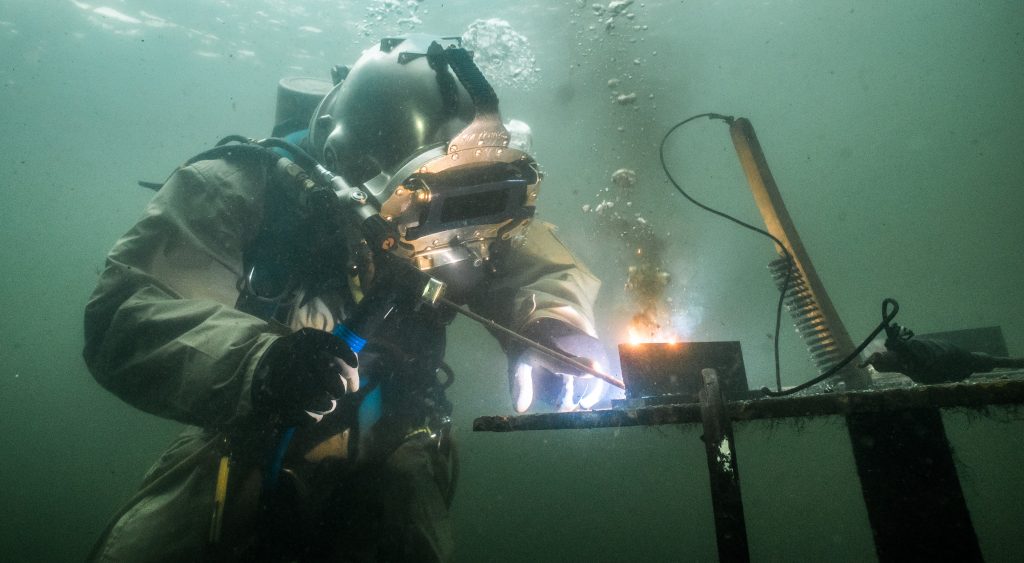
This can result in minor shocks such as the wet gloves scenario we mentioned. However, if your clothes are really wet – it could result in a fatal shock.
Some folks recommend wearing rain gear while welding in these conditions – but the sparks from your welding arc will burn through a rain coat pretty fast. This is just another reason to avoid welding in the rain altogether. It’s not worth burning through a nice rain jacket just to get the job done.
If your leather jacket gets wet, it is going to take awhile to dry out. So although you can weld in the rain for a little while, once your clothes are wet – you are pretty much done for the day. Proceeding with wet clothes would be very foolish.
Wet Equipment
In addition to the dangers of wet clothing and electrical shock, wet welding equipment can also be a serious problem.
In general, most welding machines aren’t designed to run in the rain. Although engine drives can run during bad weather conditions, it can cause electrical problems since water can enter the vents of the machine. These engine drives are more hardy than their smaller counter parts, but they aren’t waterproof by any means.
If you aren’t familiar with engine drives, they are a gas powered engine machine that produces a welding current. They allow for mobile welding and can be mounted on a truck or a trailer.
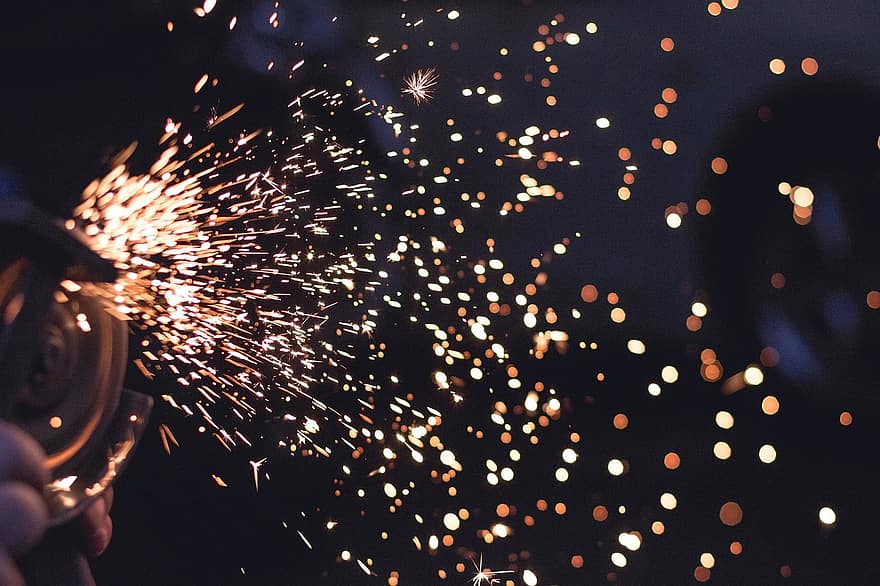
For smaller multi-process welders and MIG welders, welding in the rain is a problem. These machines are meant to be run in dry, indoor conditions. The boards and wiring on these machines are expensive to fix, so using them during rainy conditions is a really bad idea. Companies like Miller and Lincoln will not honor a warranty claim if the problem is due to water damage.
Having faulty leads can also be a problem in the rain. If your leads or cables have cuts or damage, water can seep in to them. This can cause electrical shock for the welder, and it can also damage your welding machine.
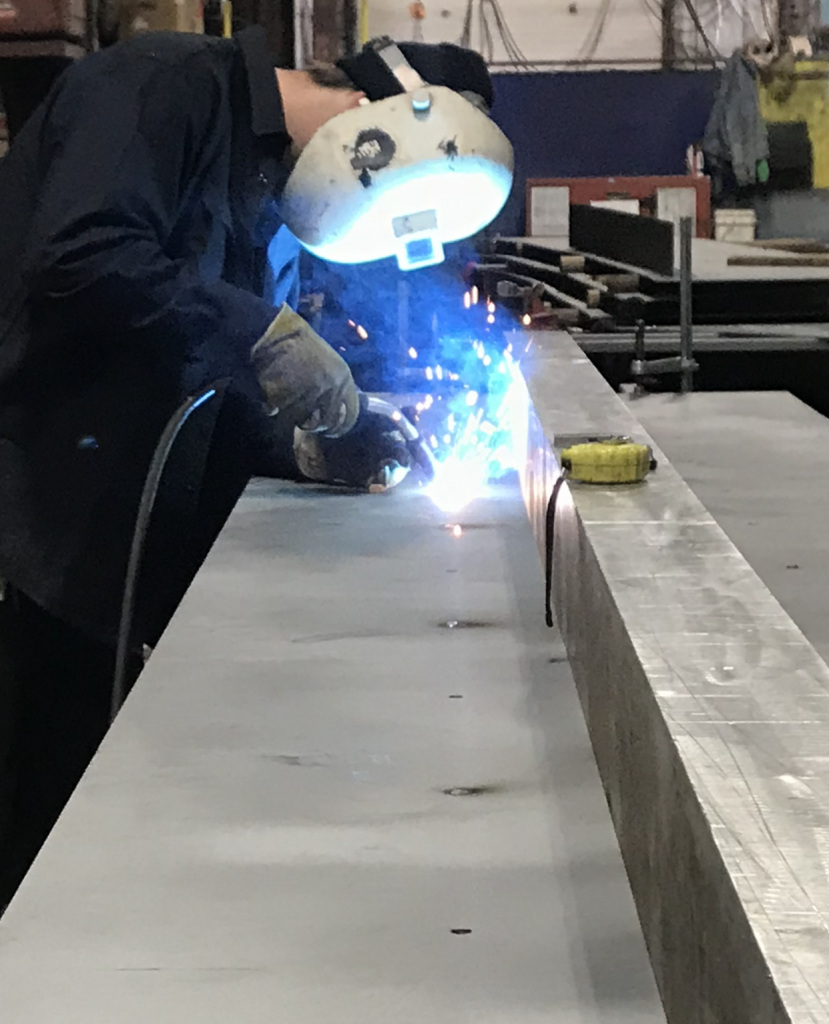
The rubber coating on leads is durable, but after awhile it may have some cuts on it. If you must weld in the rain, make sure that your cables and connections have no damage.
Current Types
Stick welding in the rain is less of a danger since you are running a DC current. This direct current is more manageable since it tends to shock less often. However, a DC shock can still be fatal at times.
Running AC (alternating current) is a lot more volatile. Since this current is constantly switching between positive and negative polarity, a shock can be more violent.
AC current is usually used on aluminum TIG as well as for some AC stick electrodes.
If you must weld in the rain, try to stick with DC processes only. This means no aluminum TIG, and no AC stick welding while it is raining. Sticking with the single polarity will make the current less volatile.
Porosity
Now although this isn’t safety related, it should be mentioned.
Welding on wet steel with wet electrodes can cause problems with your welds. Stick electrodes are meant to be dry to the touch. When the flux coating gets wet, it can cause defects such as porosity.
Porosity is defined as small holes in the weld. These holes seriously weaken a weld and are not acceptable. When the steel is also wet, porosity is much more likely. Porosity is one of the worst defects a weld can have, it should be avoided at all costs.
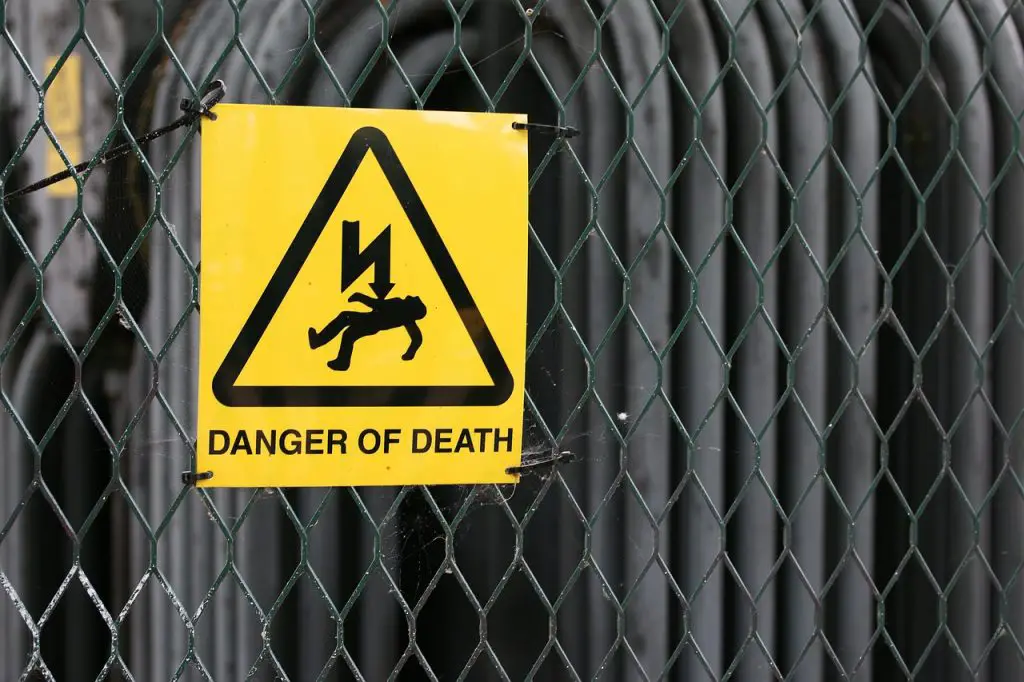
Now you may be wondering how underwater welders get away with stick welding. First of all, they are running specialized electrodes that are designed to be burned underwater. These rods are extremely pricey and are meant to perform high end welds while completely submerged.
If you take a normal 7018 rod and try to burn it when wet, you will see how bad the results are. It will still work, but the welds will be subpar.
For welding above ground in normal conditions, having dry electrodes is a must.
For MIG welding, trying to run a bead on wet steel can cause similar problems. The same goes for TIG welding on wet steel. This is why welding in the rain can produce some awful looking welds.
Personal Safety
Although welders make a decent living, getting shocked is simply not worth it. Taking a rain day will protect your health and give you a break from the grind of being a welder.
If you’re working for a company that requires you to weld in the rain, it may be worth looking for a new job. Companies that follow safety practices will not put their welders in this unsafe situation.
However, welders in rainy climates may have to weld in the rain sometimes, and this is just part of the job. If you do live in a rainy area, looking for a shop welding position might be the best bet.
If welding in adverse weather conditions isn’t your cup of tea, becoming a shop welder will allow you to progress your skills in a controlled environment. On the days where it’s nasty outside, the shop welders are happy that they don’t have to go to the job site.
If you’re an independent rig welder and you get rained out, simply explain to the client the dangers of welding in the rain. Most will totally understand, and will be fine with rescheduling.
Even in hardcore job positions such as pipeline work, the site supervisor will ultimately make an educated call based on the weather. They don’t want their welders getting hurt, so rain and snow days are usually given to these pipeline welders.


